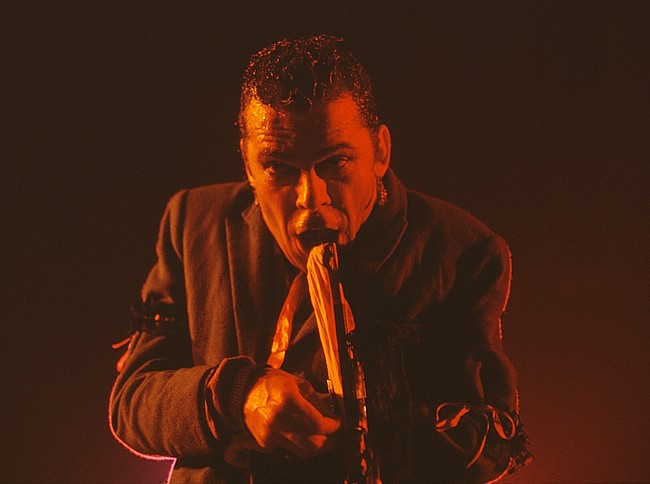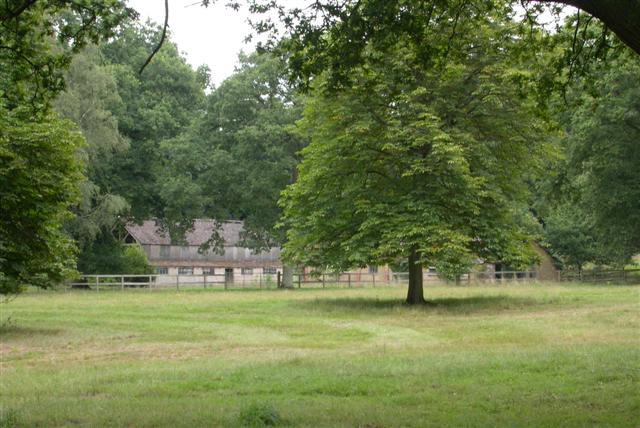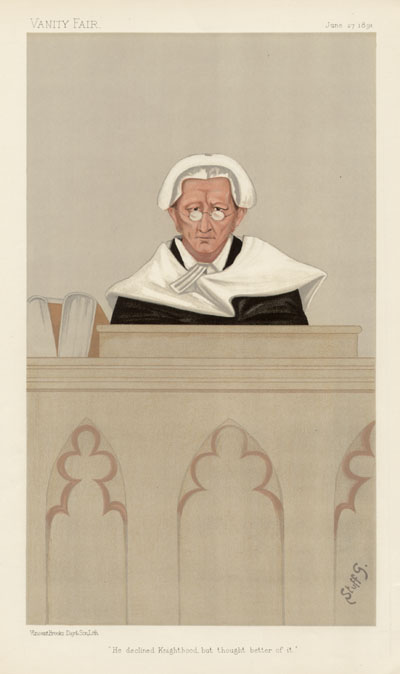|
Headley, East Hampshire
Headley is a village and civil parish in the East Hampshire district of Hampshire, England. It is 1.8 miles (2.9 km) east of Bordon on the B3002 road. The nearest railway station is 3.6 miles (5.8 km) south of the village at Liphook. The civil parish of Headley has a population of over 5,500. The parish comprises a number of settlements as well as the village of Headley itself: Standford, Arford, Headley Down, Barford, Wishanger, Sleaford, Trottsford, and part of Hollywater. Its area is . The original parish included Grayshott (until 1902), Lindford, and a considerable portion of Bordon (until 1929). The ecclesiastical parish of All Saints, Headley served Lindford and Bordon, although not Grayshott, until March 2002 — since then Bordon has become a separate ecclesiastical parish. History Headley is the oldest of three villages in the south of England of that name and has gone through a number of name spellings, but was first noted (no households were recorded ... [...More Info...] [...Related Items...] OR: [Wikipedia] [Google] [Baidu] |
East Hampshire
East Hampshire is a local government district in Hampshire, England. Its council is based in Petersfield. Other towns are Alton and Bordon. The district was originally to be known as the District Council of Petersfield. It comprised 42 seats and first met on 18 June 1973. For ten months it operated alongside the councils that it was formed to replace: the Alton and Petersfield urban districts along with Alton Rural District and Petersfield Rural District. On 8 October 1973, the new council changed its name to the current East Hampshire District Council (or EHDC as it is usually known). On 1 April 1974, the old councils were dissolved, leaving only EHDC. Sandy Hopkins was the first joint Chief Executive in Hampshire when she was appointed to head both EHDC and Havant Borough Council in October 2009. Councillors approved the business case put forward by the Chief Executive for a shared management team between the two authorities in June 2010. The new team took up its positi ... [...More Info...] [...Related Items...] OR: [Wikipedia] [Google] [Baidu] |
Eustace II, Count Of Boulogne
Eustace II, (), also known as Eustace aux Grenons ("Eustace with long moustaches"),Heather J. Tanner, 'Eustace (II), count of Boulogne (d. c.1087)', Oxford Dictionary of National Biography, Oxford University Press, 2004. was Count of Boulogne from 1049–1087. He fought on the Norman side at the Battle of Hastings, and afterwards received large grants of land forming an honour in England. He is one of the few proven companions of William the Conqueror. It has been suggested that Eustace was the patron of the Bayeux Tapestry. Origins Eustace was the son of Eustace I of Boulogne and Matilda of Louvain. Career In 1048 Eustace joined his father-in-law's rebellion against the Emperor Henry III. The next year Eustace was excommunicated by Pope Leo IX for marrying within the prohibited degree of kinship. Eustace and Ida were both descended from Louis II of France, and just within the prohibited seventh degree. However, since not all their ancestors are known, there might have existed ... [...More Info...] [...Related Items...] OR: [Wikipedia] [Google] [Baidu] |
Clover (band)
Clover was an American country rock band formed in Mill Valley, California and active from 1967 to 1978. Clover are best known as the backing band for Elvis Costello's 1977 debut album ''My Aim Is True'' (recorded in the UK), and for its members going into greater success with Huey Lewis and the News, The Doobie Brothers, and Lucinda Williams. History Formed by members of the band Tiny Hearing Aid Company, Clover's sound moved on from Bay Area psychedelia to the burgeoning country rock sound, similar to Creedence Clearwater Revival. The original line-up was based out of San Francisco, and was a quartet consisting of Alex Call (lead vocals, guitar), John McFee (guitar, pedal steel), John Ciambiotti (bass) and Mitch Howie (drums). 1970 saw their debut self-titled album released on Fantasy Records. A 1971 follow-up titled '' Niner'' aappeared on the same label. Later the band moved to the UK, and the line-up was shuffled somewhat. By late 1976, Clover's new drummer was Micky Shine ... [...More Info...] [...Related Items...] OR: [Wikipedia] [Google] [Baidu] |
Ian Dury
Ian Robins Dury (12 May 1942 27 March 2000) was a British singer, songwriter and actor who rose to fame during the late 1970s, during the punk and new wave era of rock music. He was the lead singer and lyricist of Ian Dury and the Blockheads and before that of Kilburn and the High Roads. Biography Early life Dury was born, and spent his early years, at his parents' home at 43 Weald Rise, Harrow Weald, Middlesex (though he often pretended that he had been born in Upminster, Essex, which all but one of his obituaries in the UK national press stated as fact). His father, William George Dury (born 23 September 1905, Southborough, Kent; died 25 February 1968), was a local bus driver and former boxer, while his mother Margaret (known as "Peggy", born Margaret Cuthbertson Walker, 17 April 1910, Rochdale, Lancashire; died January 1995) was a health visitor, the daughter of a Cornish doctor and the granddaughter of an Irish landowner. William Dury trained with Rolls-Royce to be a cha ... [...More Info...] [...Related Items...] OR: [Wikipedia] [Google] [Baidu] |
Pretty Things
The Pretty Things were an English band formed in September 1963 in Sidcup, Kent. They took their name from Willie Dixon's 1955 song "Pretty Thing". A pure rhythm and blues band in their early years, with several singles charting in the United Kingdom, they later embraced other genres such as psychedelic rock in the late 1960s (with 1968's ''S.F. Sorrow'' being one of the first rock operas), hard rock in the early 1970s and new wave in the early 1980s. Despite this, they never managed to recapture the same level of commercial success of their early releases. History 1962–1964: Formation The Pretty Things were preceded by Little Boy Blue and the Blue Boys, which consisted of Dick Taylor, fellow Sidcup Art College student Keith Richards, and Mick Jagger, among others. When Brian Jones was recruiting for his own band, all three joined Brian and Ian Stewart and were dubbed " Rollin' Stones" by Jones in June 1962. Because there were too many guitar players in the band, Taylor s ... [...More Info...] [...Related Items...] OR: [Wikipedia] [Google] [Baidu] |
Bad Company
Bad Company are an English rock supergroup that was formed in 1973 by singer Paul Rodgers, guitarist Mick Ralphs, drummer Simon Kirke and bassist Boz Burrell.Bad Company ''AllMusic'' Peter Grant, who managed the rock band Led Zeppelin, also managed Bad Company until 1982. Bad Company enjoyed great success throughout the 1970s. Their first three albums, ''Bad Company'' (1974), '' Straight Shooter'' (1975), and ''Run with the Pack'' (1976), reached the top five in the album charts in both the UK and the US. Many of their singles and songs, such as "Bad Company", " Can't Get Enough", " Good Lovin' Gone Bad", " Feel Like Makin' Love", " Ready for Love", " Shooting Star", and "Rock 'n' Roll Fantasy", remain staples of classic rock radio. They have sold 20 million RIAA-certified albums in the US and 40 million worldwide. History Original Paul Rodgers era (1973–1982) Bad Company was formed in Albury, Surrey. It consisted of four seasoned musicians: two former members of Fre ... [...More Info...] [...Related Items...] OR: [Wikipedia] [Google] [Baidu] |
Genesis (band)
Genesis are an English rock band formed at Charterhouse School, Godalming, Surrey, in 1967. The band's most commercially successful line-up consisted of keyboardist Tony Banks, bassist/guitarist Mike Rutherford and drummer/singer Phil Collins. The 1970s line-up, featuring singer Peter Gabriel and guitarist Steve Hackett, was among the pioneers of progressive rock. The group were formed by five Charterhouse pupils, including Banks, Rutherford, Gabriel, and Anthony Phillips, and named by former Charterhouse pupil Jonathan King, who arranged for them to record several singles and their debut album ''From Genesis to Revelation'' in 1968. After splitting from King, the band began touring, signed with Charisma Records and became a progressive rock band on ''Trespass'' (1970). Following Phillips' departure, Genesis recruited Collins and Hackett and recorded ''Nursery Cryme'' (1971). Their live shows began to feature Gabriel's theatrical costumes and performances. '' Foxtrot'' ( ... [...More Info...] [...Related Items...] OR: [Wikipedia] [Google] [Baidu] |
Headley Grange
Headley Grange is a former workhouse in Headley, Hampshire, England. It is a Grade II listed historic building. It is best known for its use as a recording and rehearsal venue in the 1960s and 1970s, by acts including Led Zeppelin, Genesis and Help Yourself. Early history Built in 1795, Headley Grange is a three-storey stone structure which was originally used as a workhouse for the poor, infirm, and orphaned. It was built for the poor of three parishes: Bramshott, Headley and Kingsley. It was the centre of a riot in 1830. The building was bought in 1870 by builder Thomas Kemp for £420; he converted it into a private residence, and named it Headley Grange. Use as a recording and rehearsal studio Parts of Led Zeppelin's albums ''Led Zeppelin III'', ''Led Zeppelin IV'', ''Houses of the Holy'' and '' Physical Graffiti'' were composed and/or recorded at Headley Grange. Led Zeppelin vocalist Robert Plant wrote most of the lyrics to Led Zeppelin's "Stairway to Heaven" there in ... [...More Info...] [...Related Items...] OR: [Wikipedia] [Google] [Baidu] |
Sir Robert Samuel Wright
Sir Robert Samuel Wright (20 January 1839 – 13 August 1904) was a 19th-century Justice of the British High Court, Queen's Bench Division. Life and career Wright was born at the rectory in Litton, Somerset, the son of the Rev H. E. Wright and his wife, who was the daughter of a clergyman.Glazebrook, P. R."Wright, Sir Robert Samuel (1839–1904)" Oxford Dictionary of National Biography, May 2006, retrieved 21 June 2015 The son showed no inclination to follow an ecclesiastical calling."Death Of Mr. Justice Wright", ''The Times'', 15 May 1904, p. 2 He matriculated as a commoner at Balliol College, Oxford at the unusually early age of seventeen. He became one the favourite pupils of the Master of the college, Benjamin Jowett, and was later a close and lifelong friend. He won several prestigious prizes and graduated with first class honours in 1860. He was elected as a fellow of Oriel College, Oxford, and for the next few years divided his time between academic work and studying f ... [...More Info...] [...Related Items...] OR: [Wikipedia] [Google] [Baidu] |
Stephen King-Hall
William Stephen Richard King-Hall, Baron King-Hall of Headley (21 January 1893 – 2 June 1966) was a British naval officer, writer, politician and playwright who served as the member of parliament for Ormskirk from 1939 to 1945. Early life and career The son of Admiral Sir George Fowler King-Hall and Olga Felicia Ker; theirs was an artistic naval family, King-Hall's sisters Magdalen and Lou also being writers. He married Kathleen Amelia Spencer (died 14 August 1950), daughter of Francis Spencer, on 15 April 1919 and they had three children, Ann, Frances Susan and Jane. He was educated at Lausanne in Switzerland and at the Royal Naval College in Dartmouth. He fought in the First World War between 1914 and 1918, with the Grand Fleet, serving on and 11th Submarine Flotilla. He gained the rank of commander in the service of the Royal Navy in 1928, before resigning in 1929. He wrote several plays between 1924 and 1940, including ''Posterity'' accepted by Leonard Woolf for the Ho ... [...More Info...] [...Related Items...] OR: [Wikipedia] [Google] [Baidu] |
Rural Rides
''Rural Rides'' is the book for which the English journalist, agriculturist and political reformer William Cobbett is best known. At the time of writing in the early 1820s, Cobbett was a radical anti-Corn Law campaigner, newly returned to England from a spell of self-imposed political exile in the United States. Cobbett disapproved of proposals for remedies for agricultural distress suggested in Parliament in 1821. He made up his mind to see rural conditions for himself, and to "enforce by actual observation of rural conditions" the statements he had made in answer to the arguments of the landlords before the Parliamentary Agricultural Committee. He embarked on a series of journeys by horseback through the countryside of South East England, Southeast England and the English Midlands. He wrote down what he saw from the points of view both of a farmer and a social reformer. The result documents the early 19th-century countryside and its people as well as giving free vent to Cob ... [...More Info...] [...Related Items...] OR: [Wikipedia] [Google] [Baidu] |
William Cobbett
William Cobbett (9 March 1763 – 18 June 1835) was an English pamphleteer, journalist, politician, and farmer born in Farnham, Surrey. He was one of an agrarian faction seeking to reform Parliament, abolish "rotten boroughs", restrain foreign activity, and raise wages, with the goal of easing poverty among farm labourers and small land holders. Cobbett backed lower taxes, saving, reversing commons enclosures and resisting the 1821 gold standard. He opposed borough-mongers, sinecurists, bureaucratic "tax-eaters" and stockbrokers. His radicalism furthered the Reform Act 1832 and gained him one of two newly created seats in Parliament for the borough of Oldham. His polemics range from political reform to religion, including Catholic emancipation. His best known book is ''Rural Rides'' (1830, in print). He argued against Malthusianism, saying economic betterment could support global population growth. Early life (1763–1791) William Cobbett was born in Farnham, Surrey, on 9 Mar ... [...More Info...] [...Related Items...] OR: [Wikipedia] [Google] [Baidu] |





